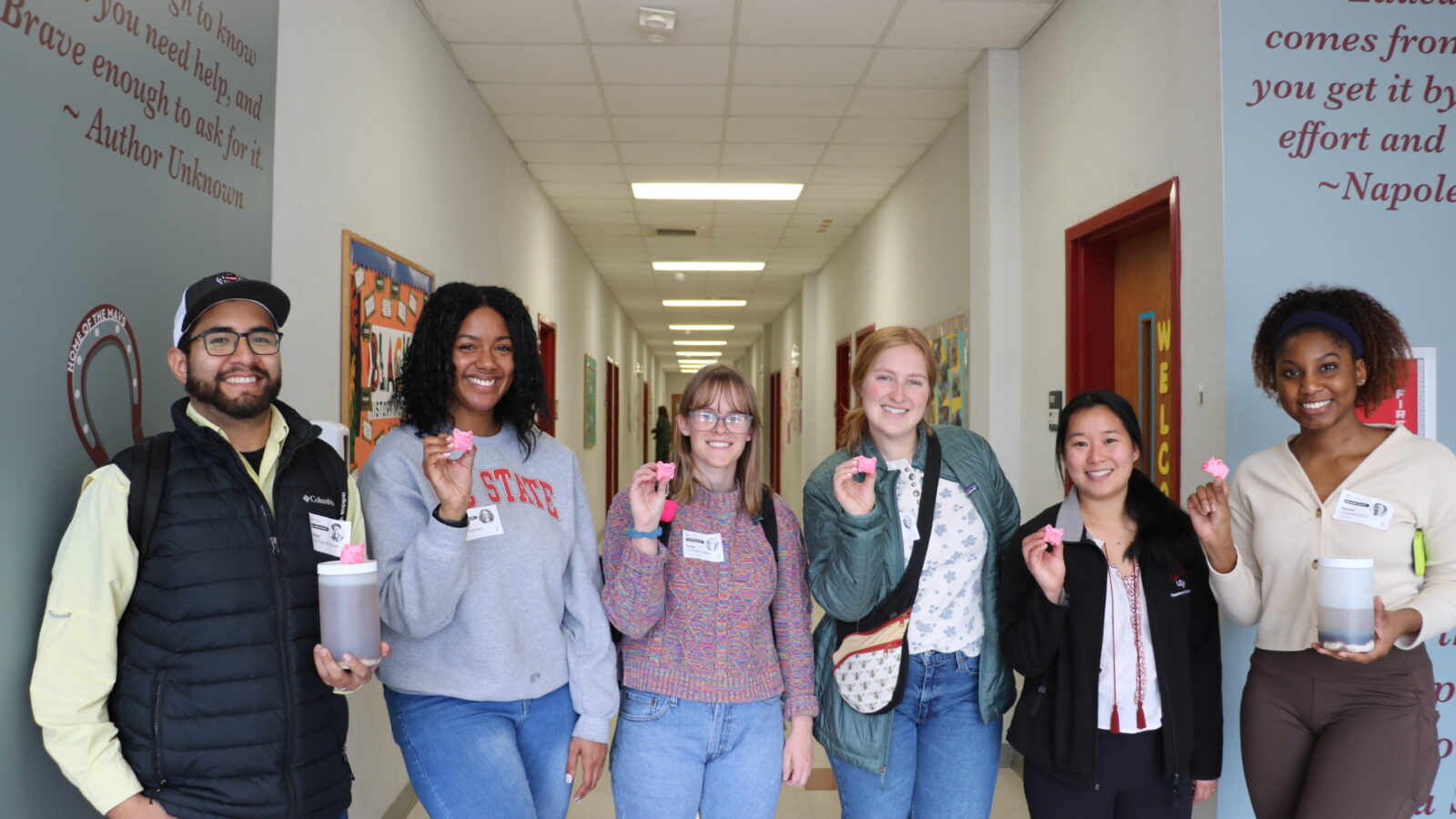A new student-led outreach group has sprung up in the Biological and Agricultural Engineering (BAE) Department. Naomi Pitts, a graduate student working under William Neal Reynolds Distinguished University Professor Bill Hunt, is the president and founder of STEM Program to Reach Our Underrepresented Teens (SPROUTS).
SPROUTS is a group that operates within BAE’s Graduate Student Association (GSA). The group began to take root when Pitts was enrolled in a masters student research course. Pitts says, “Something we talked about in class was our broader impact. After that class, I started thinking about what could be the broader impact of not just my research, but my time here in this department.”
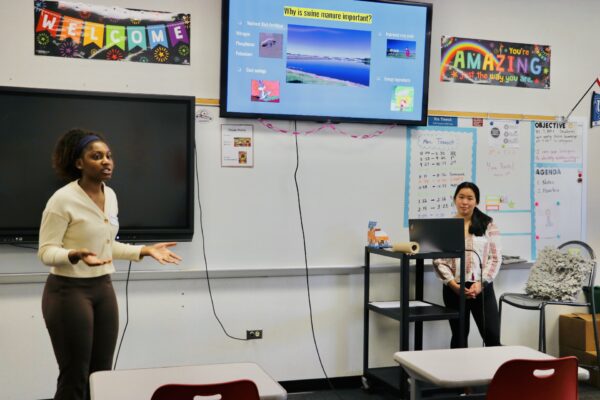
Pitts credits her interest in biological engineering to her love of the environment and her two older brothers who also studied engineering. Her research with Hunt focuses on four different stormwater control measures in the state. These measures help to mitigate the impacts of flooding in urban areas.
As for her broader impact, Pitts says, “When I look around, I see that we could use some help increasing diversity and inclusion not just in our department, but in the engineering field in general.” That is exactly what SPROUTS is designed to accomplish.
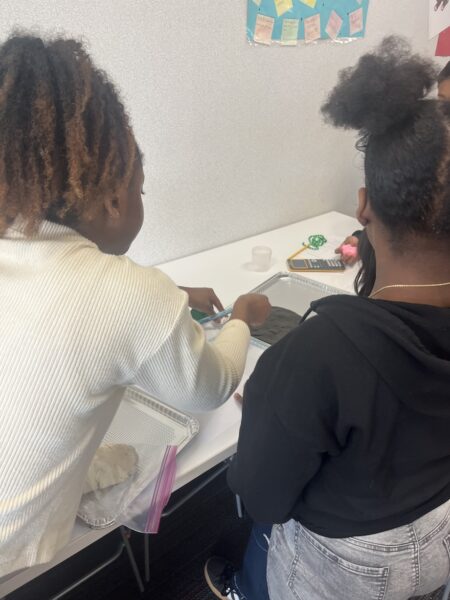
The program sets out to close the gap between K-12 learning and college education through science, technology, engineering, agriculture and math based workshops. Once a month, volunteers travel to a school in Wake County to lead an hour-long activity with students. So far, volunteers have led workshops at Mount Vernon Middle, Dillard Drive Magnet Middle and other schools ranging in grade level.
Many of the workshops implement concepts that graduate students are currently working on in BAE. Lillian Lower, SPROUTS secretary and BAE graduate student, says, “My research focuses on lithium-ion batteries, so with the students we made a circuit. We didn’t make graphite.” Lower explains that process takes a long time. Instead, the group simplified the concept and focused on explaining its basic principles during the workshop.
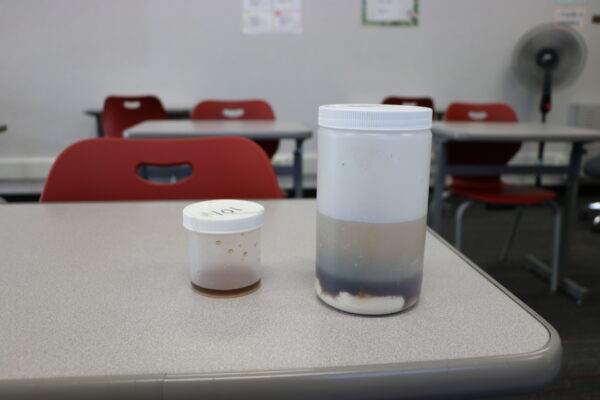
The group’s most recent workshop took place at Mount Vernon Middle School. During this session, volunteers taught students about waste water management. Volunteers teamed up to led students through an activity where they had to use a budget to create a model swine waste lagoon. Lower says that during the activity it was fun to see how each group used their budget differently. Every model was unique.
Pitts explains that SPROUTS isn’t going to these schools to replace teachers. They are just trying to expose different engineering concepts to underrepresented teens and children. She says, “It’s not to make every child that participates want to go and work on something like waste management, but it gets them thinking about how diverse the field of engineering can be.” She goes on to say, “I’m sure people have a certain idea of what they think an engineer does, but it is such a broad field of study. There are things they can do that they might not have considered yet.”
SPROUTS also participated in 4-H Science Saturday. Group members spent the day leading STEM-based activities for kids. SPROUTS group members used a model of a coastal town to demonstrate water and pollutant run-off into the ocean.
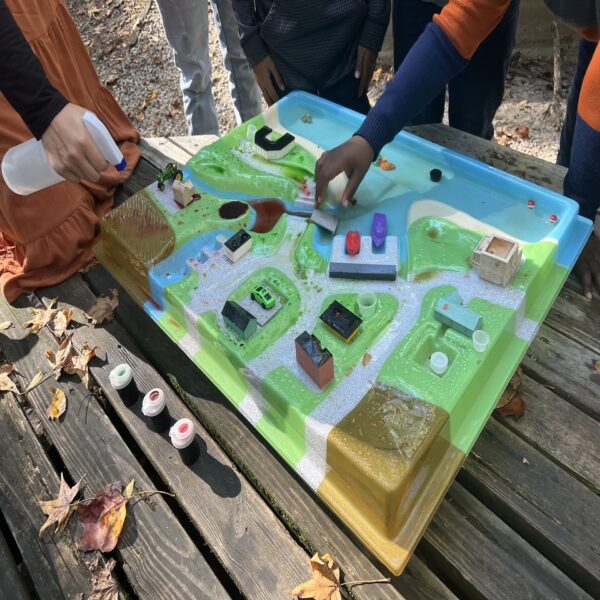
Lower says teaching these concepts is a great way to learn. She says, “I think the best way to learn is to teach. You don’t really know how well you understand something until you try to explain it to someone.” She says leading workshops with students who are at a different learning level allows SPROUTS volunteers to be creative when coming up with activities. The group uses funds they were awarded from the American Society of Agricultural and Biological Engineers’ (ASABE) 2024 KEYS grant. This grant allows them to purchase the supplies necessary for their workshops.
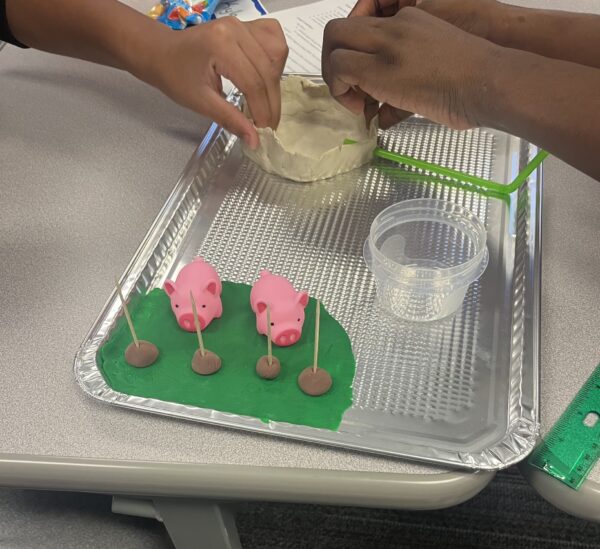
Pitts explains that anyone is welcome to volunteer. Recently, a few BAE undergraduate students have volunteered. Pitts says, “I want this to be something that lasts, so I’ve been trying to get more undergrads involved.” She is preparing to pass the porch once she graduates.
Pitts says, “I just want to expose students to how diverse engineers can look, and to the idea that you don’t have to look or be a certain way to become an engineer.”

